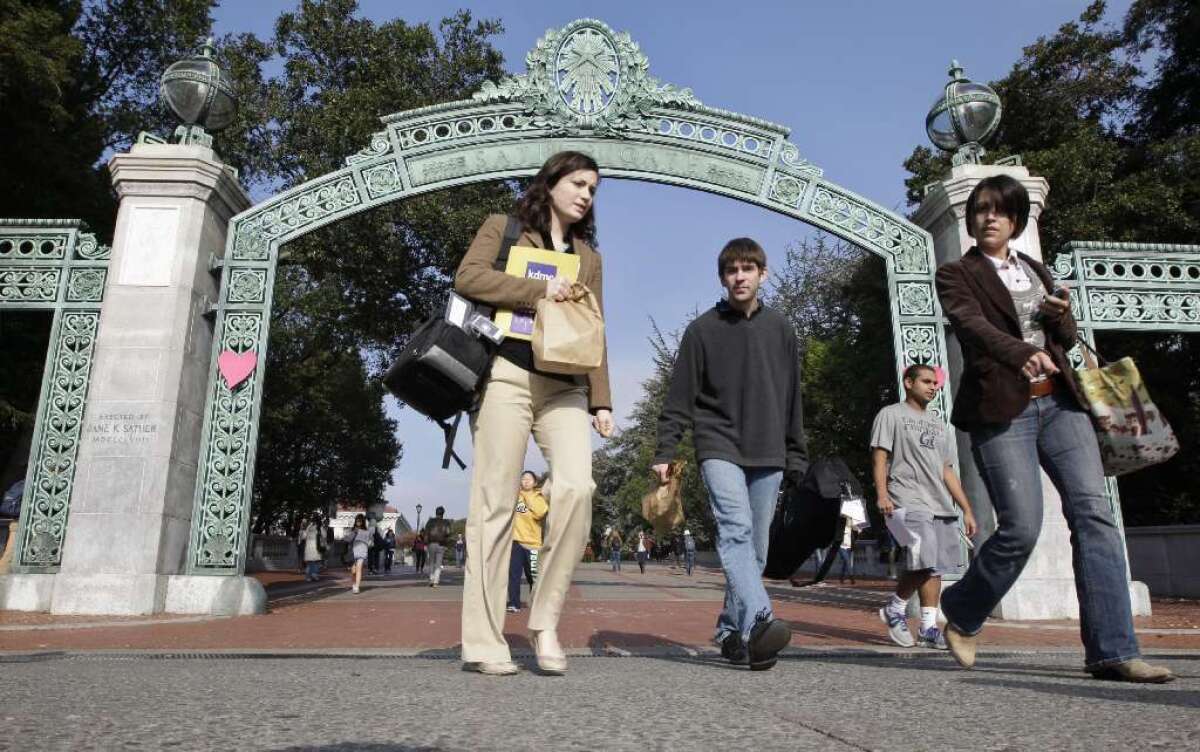How to mange the financial risk of investing in college

Smack in the middle of the holiday rush, college applications are due — anxious weeks for high school seniors and their families. To heighten the anxiety, no month passes without a critic proclaiming that college is a pedantic waste of money, while opinion polls show a rising fraction of the public doubts the value of a college education. Yet many studies find that college still outperforms other investments, at least for the typical student.
Any student trying to make sense of this confusion should recognize that investing in a college education differs from other investments in two important respects. First, you have some control over the return on your investment (unlike the performance of a stock). Second, you have inside information on how to invest because you’re investing in yourself.
In our study of college costs and returns in California, we recognized that some students drop out while others take more than four years to graduate. Nonetheless, we found that entering freshmen at the University of California and Cal State University systems will see an average rate of return on their investment of about 12%. This is much higher than the 3.9% interest rate currently charged on Stafford student loans. In other words, college remains a good investment for the typical entering freshman.
2013 ENDINGS: Columnist Patt Morrison on what she won’t miss
But the 12% return is an average. It includes students who develop successful start-ups, students who drop out and students who graduate but don’t find work. It includes English and engineering majors, artists and accountants. Some students will earn far greater than 12% on their educational investment, and others will end up in financial distress.
Although the average return on the college investment remains high, the recession and higher tuitions have increased the differences in outcomes among college graduates. The growing gaps between the highest- and lowest-earning students means that college has become a more risky investment for prospective freshmen and their families.
Anxious high school seniors can’t eliminate the financial risk from investing in education, but they can manage the risk by following a few simple rules:
YEAR IN REVIEW: Meghan Daum’s overrated and underrated 2013 list
Consider what comes after graduation. College is a time when students can discover their passions. It’s also a time to become aware of the world and how those passions may fit within it. What happens to a particular major’s graduates? How do they find professional and personal fulfillment? There are plenty of data on earnings by major on the website for Georgetown University’s Center on Education and the Workforce (cew.georgetown.edu), and earnings by occupation from the Bureau of Labor Statistics (bls.gov). Think about how these earnings will compare with a monthly student loan repayment, a figure you can estimate at FinAid.org (finaid.org/calculators/loanpayments.phtml).
Graduate, and do it on time. When considering a particular college, learn what fraction of entering students fail to graduate in four years. If the fraction is more than 15%, find out where the obstacles are. Realize that spending a fifth year in college costs extra tuition and a year of forgone earnings. It also leaves you always one year behind in the labor market in terms of experience and promotions.
Be smart about student loans. The federal government offers a variety of plans to repay federal student loans. Graduates with low incomes can qualify for lower loan repayments, and even have debts forgiven after a period of time. Because the programs can be complicated to access, far fewer students who could benefit from these programs actually take advantage of them.
YEAR IN REVIEW: Paul Walker and six other inspirational people who died too soon
Champions of higher education have long described college as a ticket to the middle class — an automatic route to top jobs with good salaries, benefits and prospects. That’s too optimistic. College remains a good investment for the typical student, but it is an investment that carries increasing risks. Fortunately, the risks can be wisely managed. College today shouldn’t be considered a surefire ticket to any outcome. It is a steppingstone to be navigated purposefully.
Alan Benson is an assistant professor in the Carlson School of Management at the University of Minnesota; Krishna Esteva is a management consultant; Frank Levy is professor emeritus at the Massachusetts Institute of Technology. They are members of the Scholars Strategy Network.
More to Read
A cure for the common opinion
Get thought-provoking perspectives with our weekly newsletter.
You may occasionally receive promotional content from the Los Angeles Times.






